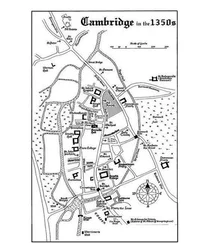Susanna Gregory - The Piccadilly Plot
Здесь есть возможность читать онлайн «Susanna Gregory - The Piccadilly Plot» весь текст электронной книги совершенно бесплатно (целиком полную версию без сокращений). В некоторых случаях можно слушать аудио, скачать через торрент в формате fb2 и присутствует краткое содержание. Год выпуска: 2012, ISBN: 2012, Издательство: Little, Brown Book Group, Жанр: Исторический детектив, на английском языке. Описание произведения, (предисловие) а так же отзывы посетителей доступны на портале библиотеки ЛибКат.
- Название:The Piccadilly Plot
- Автор:
- Издательство:Little, Brown Book Group
- Жанр:
- Год:2012
- ISBN:9780748121052
- Рейтинг книги:3 / 5. Голосов: 1
-
Избранное:Добавить в избранное
- Отзывы:
-
Ваша оценка:
- 60
- 1
- 2
- 3
- 4
- 5
The Piccadilly Plot: краткое содержание, описание и аннотация
Предлагаем к чтению аннотацию, описание, краткое содержание или предисловие (зависит от того, что написал сам автор книги «The Piccadilly Plot»). Если вы не нашли необходимую информацию о книге — напишите в комментариях, мы постараемся отыскать её.
The Piccadilly Plot — читать онлайн бесплатно полную книгу (весь текст) целиком
Ниже представлен текст книги, разбитый по страницам. Система сохранения места последней прочитанной страницы, позволяет с удобством читать онлайн бесплатно книгу «The Piccadilly Plot», без необходимости каждый раз заново искать на чём Вы остановились. Поставьте закладку, и сможете в любой момент перейти на страницу, на которой закончили чтение.
Интервал:
Закладка:
He reached the Crown and spent a few moments studying it from the shadows cast by the Gaming House opposite. Lights blazed on the ground floor, and a lamp was lit in the attic, but the rooms in between were in darkness. He crossed the road and entered the tavern. It was full and very noisy; Landlord Marshall moved between the tables with a genial smile and amiable conversation.
Still happy to gossip, Marshall informed Chaloner that the Piccadilly Company had permanent hire of the first floor, while the two storeys above it were rented by tenants, namely Pratt and a woman for whom he seemed to hold a fatherly regard. Chaloner sat for a while, watching and listening, and when he was sure no one was looking, he slipped up the stairs.
The Piccadilly Company’s chambers were locked, but it did not take him long to pick the mechanism and let himself inside. He lit a candle from the embers of the fire, shielding it with his hand so it would not be seen from outside.
The first room was an elegantly appointed parlour, with wood-panelled walls and a finely plastered ceiling. Its only furniture comprised a large table of polished oak, with benches set around it. He examined them minutely, then did the same for the panelling, floorboards and chimney, but if there were secret hiding places for documents, then he could not find them. The only evidence that papers had been present was in the hearth, where some had been reduced to ashes.
The second room was a pantry, indicating that refreshments were sometimes served, but a search of it yielded nothing. He returned to the parlour and sat on one of the benches, wondering what it was that Fitzgerald the pirate, the Dutch Janszoons, the nice Mr Jones, the Portuguese man, the three scouts and their cronies discussed. It was clearly something they wanted kept secret, or they would not have hired Brinkes to stand guard downstairs.
Could they be plotting rebellion? There had been dozens of uprisings since the King had reclaimed his crown — by Parliamentarians unwilling to accept that the Republican experiment was over, and by fanatics who believed the throne should have been offered to Jesus instead. They occurred so frequently that the newsbooks no longer bothered to report them, and the only person remotely interested was Spymaster Williamson, whose duty it was to suppress them.
But Chaloner did not think Harley and his fellow scouts were the kind of men who would care about politics — they were too selfish to risk themselves for a principle. However, Fitzgerald had lost his fortune in a storm, and Landlord Marshall believed he intended to make himself wealthy again. Somehow, money seemed a far more likely explanation than insurrection. But what were they planning, exactly? And how did the Tangier massacre fit into it?
As sitting in the parlour was not providing answers, Chaloner stood to leave. He glanced at the ashes in the hearth and, out of desperation, poked among them until he recovered a fragment that had escaped the flames. He tweaked it out, but it had been written in cipher:
iws
ubj
kwy
jvv
rzv
wiy
evj
jvb
rdi
xlp
ell
qcm
ftq
xds
cmr
zva
knt
elq
pad
dpm
znx
pdk
yto
jgw
pup
qpj
rbh
tjo
ufz
moq
iqq
ylz
hjh
ibj
wiq
iaq
oqi
jhn
rtr
shw
qsi
jbx
egq
yin
udh
azd
hag
fcm
dyp
ivy
am
He shoved it in his pocket, thinking it told him one thing for certain: that if the Piccadilly Company was sending or receiving coded messages and then burning them, it was embroiled in something untoward. It was not something that honest people tended to do.
He relocked the door and was about to walk down the stairs when he heard someone coming up them. The person was carrying a lamp, and it cast a shadow on the wall. Chaloner froze in alarm when he recognised the unmistakable bulk of Brinkes — he was about to be caught prying by a man who made his living by violence and murder.
Chapter 4
Chaloner was reluctant to fight Brinkes, because he did not want the Piccadilly Company to know it was being monitored. Unfortunately, there was no time to pick the lock on the door again, so he ran silently up the stairs to the next floor. Not surprisingly, Pratt’s rooms were locked, and as he bent to try the handle, his sword scraped against the wall. It was a careless mistake, and he heard Brinkes falter on the floor below. There was a brief pause and then footsteps as the man came to investigate.
With no other option, Chaloner continued upwards to the attic. Luckily, that door was open, so he stepped through it quickly.
The woman sitting in the window spun around in alarm. She was pretty, with brown hair and clear skin, and she recognised him as the man who had seen her watching the street because she smiled. He interpreted it as a sign that she would be willing to help him, so he put his finger to his lips, and had only just managed to duck behind the bed before the door flew open.
Brinkes stood there, one meaty hand clutching a lamp and the other holding a dagger. When he began to stride towards the woman with barefaced menace, Chaloner swore softly, seeing he would have to do battle after all. He started to stand, but sank down again when she began to speak.
‘Do you have a dog?’ she asked in a curiously childish voice. She beamed at Brinkes, an expression that bespoke vacuity, and Chaloner realised with a start that there was something amiss with her wits. ‘James has a dog. A black one. Have you seen it? It is missing.’
‘Your husband is dead,’ said Brinkes, stopping in his tracks to regard her warily. ‘And so is his dog. Do you not remember being told? But never mind that. Did anyone just come in here?’
‘I like visitors,’ declared the woman, rocking back and forth. ‘But I do not have many.’
‘Christ,’ muttered Brinkes. Like many folk, he was unsure how to deal with disturbed minds. Unsettled, he began to back away. ‘Lock the door when I have gone. There are a lot of unpleasant people in this part of the city, and you do not want them coming in.’
The door closed, but Chaloner waited until Brinkes’s footsteps had gone all the way to the ground floor before moving. He stood and smiled gratefully at the woman.
‘I like visitors,’ she announced brightly. ‘My name is Ruth Elliot, and my husband is called James. He has a dog, and it is missing. Have you seen it?’
Chaloner frowned. James Elliot was the name of the man who had fought and killed Cave. ‘When did your husband die, mistress? Yesterday?’
‘He has not been to see me all day, and my brother told me he was dead.’ Then her troubled expression lifted, and she laughed. ‘But it cannot be true, because he was alive on Sunday.’
A miniature line-engraving had pride of place on the table, so Chaloner picked it up. The likeness had been made when Elliot was younger, but the eyes and black wig were the same. Also, Lester had mentioned a Ruth who would be heartbroken if Elliot were harmed, although Chaloner doubted it was the shock of her spouse’s death that had turned her wits: the array of medicines on the cabinet, and the dolls lined up on the bed, suggested they had been awry for some time.
Читать дальшеИнтервал:
Закладка:
Похожие книги на «The Piccadilly Plot»
Представляем Вашему вниманию похожие книги на «The Piccadilly Plot» списком для выбора. Мы отобрали схожую по названию и смыслу литературу в надежде предоставить читателям больше вариантов отыскать новые, интересные, ещё непрочитанные произведения.
Обсуждение, отзывы о книге «The Piccadilly Plot» и просто собственные мнения читателей. Оставьте ваши комментарии, напишите, что Вы думаете о произведении, его смысле или главных героях. Укажите что конкретно понравилось, а что нет, и почему Вы так считаете.












